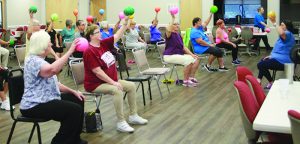By Moses Leos III
Attending Buda City Council meetings may soon become virtual.
City leaders are contemplating the use of live stream technology in city hall. Meetings would be broadcast live using web video technology.
“We feel we are a big enough city and there’s interest in what’s going on,” Buda Mayor Todd Ruge said. “It’s something we probably should have done a few years ago.”
As a former employee at the city of Austin, Buda resident Terry Carroll knows how live streaming broadens the reach of city governments. She said Austin’s use of the technology helped citizens access the inner workings of its government.
Ideas about televising council meetings originated around 2005. At the time, Ruge said Time Warner Cable contemplated allowing the city to use its public access channel to televise meetings.
But the deal collapsed, keeping Buda’s meetings confined in city hall.
Talks of video resurfaced in recent years, spurred by public inquiry.
“Giving people as much access as possible is a good thing,” Ruge said. “Most municipalities are doing it.”
City council and staff were given more information at their special called meeting on May 7, including how much it could cost to implement the service.
Several options presented were methods used by other cities. San Marcos, for example, uses Granicus – a popular cloud-based civic government network – since 2008.
In an emailed response, San Marcos spokesperson Trey Hatt said the city pays $27,153.36 annually to live stream and collect recordings from its meetings. Hatt said anywhere from a few viewers to more 200 view the videos, both live and archived.
Behind the scenes, Granicus is hooked into the “plumbing of the TV broadcast system,” Hatt said. The signal is grabbed and converted into the live streamed and archived in real time.
In addition, the system marks the video by agenda item, with the city clerk time stamping the video. Hatt said a video technician works the television side, with the assistant city clerk managing.
Hays County also uses Granicus to provide access to its weekly Commissioner Court meetings. Liz Gonzalez, County Clerk at Hays County, said the county recorded meetings before 2009.
“We video taped [meetings] with just our own camera,” Gonzalez said. “We started using a different system, then switched to Granicus.”
Gonzalez said the county pays $972 monthly for maintenance costs.
For some city leaders, ensuring the citizens will benefit from the service is a priority. Council member Wiley Hopkins said focusing on a lower cost is key.
City Manager Kenneth Williams said at the special called meeting the city would need more than one camera.
However, Ruge doesn’t expect to implement such changes until after the current budget season ends on Oct. 1. Also undecided is where the money would come from to fund the system.
Ruge feels the system will be an asset to civic functions.
“It’s a good tool to have available,” he said. “Not everyone can make the meetings, whether work or kids or other obligations.”
Carroll said she would watch a council meeting prior to attending if Buda were to implement such services. She also said the system will be worth the price tag.
“I’m all for open and easy access to government,” she said.
Buda residents Shawn and Elisa Cooper also like the idea of live streaming. They believe an engaged, informed constituency is crucial, especially with growth on the way.
“We want to be as much in the community as we possibly can,” Shawn said. “That would make what’s going on behind the scenes more accessible for us.”









